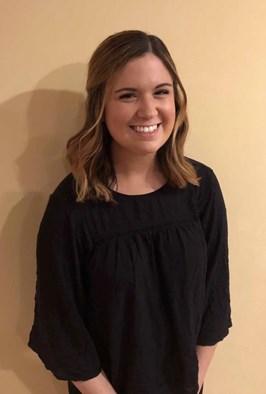
4 minute read
CMHC
Volume 10, Issue 21
Clinical Mental Health Counseling
I think that it is a good complement to the department! One recent graduate that I ran into asked me about the program without me even mentioning it, and I see that ABA is a good direction that some CMHC will chose to go for further education and job opportunities. ABA is a strong application of Behavioral Therapy and has a lot of application to work, especially with children and adolescents. I hope that even those who are not planning on taking the ABA program will be benefiting from increased exposure of how ABAs work. I hope that there could even be collaborations between students in the CMHC, RC, and SC programs and students in the ABA programs, and I hope that it happens to the mutual benefit of students in all programs.
Dr. Ben Willis, CMHC Program Director
I believeApplied Behavior Analysis (ABA) is a theory and/or a set of theories that are combined to increasespecificbehaviors in different settings. Myunderstanding is that ABA increases focus and attention in academic settings. ABA also decreasesbehaviors that are deemedinappropriate or considered to be problematic.
Dani Burge, CMHC Student
Applied behavioral analysis (ABA) is a therapy developed from learning theory, where the client is improving specific behaviors through social learning. ABA uses positive reinforcement to allow for learning to take place within the client so that a variety of behaviors and skills, such as social interaction and communication, can be modified and maintained. ABA is also a great intervention for reducing negative behaviors in situations where these behaviors are presenting. ABA is typically used with clients with autism; however, ABA is a very useful tool for clients without autism, as well. I could see myself implementing ABA with my current and future clients in the college setting as a way for them to identify behaviors that need modification, measure their progress, and work to maintain positive behaviors and outcomes.
Julia Lettieri, CMHC Internship Student
School Counseling
School counselors are involved with many students who have special needs including those with Autism, Asperger Syndrome, and other Pervasive Developmental Disorders. The ABA program is a wonderful complement to the School Counseling Program in that it will allow graduate students to take coursework that will enable them to learn effective behavioral techniques and interventions to work with specific student populations. Given the prevalence of these disorders, it is paramount that school counselors can help students overcome difficulties and find success in school and life. Dr. Cerrito, SC Program The addition of this program allows prospective students another degree programfrom which to choose to meet their future career goals. The ABA program
Director offers some unique classes that counseling majors may be able to take as electives that will allow them to develop a secondary area of expertise or specialization that fitswith their counseling degree. The addition of the Autism hub will also likely create some unique opportunities for graduate students to gain clinical experiences with a specific client population.
What is your own understanding of Applied Behavior Analysis?
I had not heard about Applied Behavior Analysis until I became a part of this department. My knowledge is stillpretty limited, butI see it as an art through which we can assist clients and students who may need extra support in making changes to their behavior patterns, perhaps due to a disability or past trauma. After working as a substitute teacher in classrooms with Behavior Technicians, as well as talking with some of the faculty in our department, I'm understanding ABA to be an extremely important part of counseling work. I'm really interested in learning more about it to inform my future work as a school counselor!
Sarah Frederick, SC Student
In your clinical experiences, how have you seen ABA utilized? When I was working as a Therapeutic Staff Support I utilized positive reinforcement when working with my clients. Something would trigger the student to act out and they would get a consequence. If you don’t work on this assignment now, you will not be able to go on the computer. In order to have the student repeat the behavior that was expected of him, positive reinforcements were given. Whether that be a food reward or a green smiley face, the child was rewarded for his positive behavior.
How do you see ABA complementing your own field and the work you are doing /will be doing in the future?
I think having the knowledge of
ABA will enable to me to collaborate with teachers that have students in their classroom that act out. They can implement a reward system when they see the child doing something positive so that behavior will be repeated.
Kimberley McGuire, SC Internship Student


